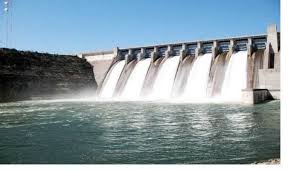THE poor national examination results achieved by students in Binga schools each year tell a story of an underfunded education system suffocating a hugely marginalised district.
What makes it more deplorable is the fact that Binga, which is tipped to be Zimbabwe’s next tourism hub, is currently generating a lot of foreign currency for the country but none of it is being ploughed back into the district.
Binga, teeming with magnificent sand beaches, hot springs and wildlife, is one of the most beautiful places tucked away in Matabeleland North. However, it is also one of the most underdeveloped areas in Zimbabwe. The district remains neglected in terms of infrastructure. The roads are poor, and schools and health facilities are in a deplorable state.
Home to most of Zimbabwe’s Tonga and Nambya minority groups, the district, sitting on the edge of the mighty Zambezi River, is affected by chronic poverty and reduced access to higher education.
Investigations by CITE established the poor conditions of Binga’s schools – where teachers live under squalid conditions and hardly have material to assist them in their work – has meant that students in the district have ‘an erratic relationship’ with teachers who come and go, sometimes as rapidly as the change of school terms.
The investigation was done, working in collaboration with the Information for Development Trust (IDT), a non-profit organisation that supports journalists in Zimbabwe and in the region to investigate issues of corruption in the public sector and bad governance.
The pain of those putting on the shoe
A resident in Binga town’s Simanyanga Suburb, Givemore Munkuli said:
“When these children leave school without any passes at O Level, they can only join their colleagues in marriage, that is if they are girls.
“If they are boys, then the situation is worse because they have no way of sustaining themselves in life.”
Women and girls suffer the most.
Starni Mpofu, chairperson of the Mthwakazi Republic Party (MRP) in Binga, said of all the challenges faced by both females and males, women had to contend with challenges related to their gender.
“In some families, the education of women is not emphasised and hence some drop out of school at a young age to get married,” she said.
“There are also challenges related to women’s sanitary issues and most schools are not a conducive environment for a young girl, especially at secondary school.” Some of the women approached for interviews refused to speak to the media. How local leaders see the challenges









